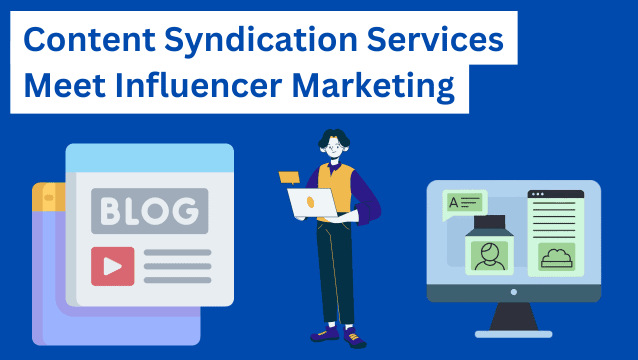Finding relevant, high-quality backlinks is a constant challenge for SEO professionals, agencies, and website owners.
Many marketers rely on the same old tactics – like pitching big-name blogs or securing press mentions. However, sometimes, these strategies don’t work when dealing with hyper-specific audiences or “niche” industries.
That’s where unconventional outreach comes into play.
In this guide, we’ll discuss how you can build links in niche markets through strategies that go beyond the standard tactics. We’ll cover everything from engaging in specialized forums to sponsoring events that your top competitors might not have considered.
Understanding the importance of niche link building
When we talk about “niche” markets, we refer to focused industries, subcultures, or highly specialized audience segments. These are a few examples:
- A microbrewery selling only a certain type of beer.
- An online store selling only eco-friendly cat toys.
- A B2B SaaS platform specializing in helping small-scale architecture firms.
Here’s an example: Accountable is a platform (and an app) specifically for freelancers and self-employed people working in Germany. It helps users easily manage their invoices, VAT, and tax income returns.
In each of these cases, “popular” link building methods, like pitching large publications, might not be that effective for your return on investment (ROI). Instead, you may have a higher chance to boost your engagement if you target specific communities within that industry.
Why does relevance matter so much?
From an SEO perspective, relevance is a key factor. A link from a “hyper-relevant” site in your niche has more weight than a generic link from a large publication with a broad audience.
Google identifies these niche-specific backlinks as signs of authority and expertise. In turn? It rewards your content with better rankings.
Trust and brand recognition
Besides pure SEO metrics, niche link building helps you establish trust within that specialized community.
When you’re active in a niche forum or an industry association’s blog, and the readers see that you’ve linked your site, they’re more likely to recognize and trust your brand. – This happens because you’re sharing your expertise and experience in a group within your niche with people interested in your topics.
According to Ahrefs, it’s important to implement links naturally, such as when giving advice rather than spamming the group.
Here’s an example of someone advising different flight simulators in a discussion group. They added two links “naturally” as part of their message.
Participating in relevant discussion groups over time can lead to more sales, word-of-mouth recommendations, and long-term client relationships.
Key challenges in niche link building
Niche link building doesn’t come without its hurdles. Here are a few you might come face to face with:
Limited opportunities
In some cases, the number of industry-specific sites may be relatively small compared to larger and generic sites. This means that you’ll have to be more creative for successful outreach and look for unconventional opportunities, which is exactly what we’ll cover in this guide.
Higher barrier to entry
Smaller, tight-knit communities can be wary of outsiders. A forum admin might reject your guest post pitch, so you’ll have to add a touch of personalization in your cold email and include case studies and results you’ve achieved for your clients.
Research shows that cold emails have a 1%-5% successful average response rate. When you personalize your email, the response rate is targeted at the higher end of this range.
Competition for limited spots
Since niche sites are fewer, there may be a lot of competition among brands. How do you stand out from your competitors? Why should a brand choose you over someone else? Create a compelling pitch and offer a fresh angle that resonates with the audience.
Difficulty demonstrating ROI
If your brand’s leadership or clients are unfamiliar with niche strategies, they might question the value of “small” link sources. You’ll need to highlight how these links can bring highly targeted traffic and valuable authority.
Recognizing these challenges is essential to creating an effective plan. To address them, you must be persistent and creative and offer valuable content.
5 unconventional outreach strategies for niche markets
Now, let’s explore some unconventional strategies that can open doors to powerful backlink opportunities in niche markets.
1. Guest posting in specialized industry forums
Guest blogs are a staple of link building. But we often limit ourselves to established blogs or news sites. The truth is that specialized industry forums can be gold mines if you approach them correctly.
Why forums?
Why should you post in forums for link building opportunities? They offer:
- Highly engaged audiences. Forums tend to draw in professionals and enthusiasts who are deeply interested in the niche topic.
- Direct feedback. You’re not just dropping a link. But you can actually use the forum as an opportunity to interact with people and answer questions. In other words, it’s a great way to showcase your expertise.
- Less competition. This is why we’re discussing industry forums as part of your unconventional outreach plan. You’re less likely to find competition here. Many brands overlook forums as they’re not “traditional” publishing platforms.
How to get started
Getting started as a niche expert in forums is pretty straightforward:
- Identify active forums. Google search queries like “[Your niche] forum,” “industry + discussion board,” or “topic + community” can help. You can, for example, visit your favorite forum, like Quora, and find topics or discussions in your niche.
- Observe before participating. Don’t post right away. Check what users are asking and take your time to read and understand the forum rules. Forums might have guidelines about self-promotion or external links – make sure to abide by them. Otherwise, you’d risk getting “kicked out” of the group or giving the impression that you’re a spammer.
- Become a recognized contributor. Don’t just pop in, drop a link, and vanish. Be active. Answer users’ questions and add value to your responses. This helps build trust and increases the chance that your links will be well-received.
When offering value or some kind of guide, here’s what your forum response (including links) might look like:
Forum guest posting example
Here’s an example of guest blogging in an industry forum:
- Scenario: You run a blog about eco-friendly gardening.
- Strategy: Find a small and active forum. Check if it has an “expert corner” or “featured posts” section, and pitch an in-depth tutorial (e.g., “X Advanced Composting Methods for Urban Areas”).
- Outcome: The forum admin loves the idea as it adds a lot of value to the community. They might also add a link back to your resource library on your post.
2. Building relationships with micro-influencers
Influencer marketing isn’t just for big brands or mainstream markets. Micro-influencers, people with smaller, highly engaged followings, are integral to niche communities.
Why micro-influencer marketing?
This is how micro-influencers can help you build links:
- Authenticity: Micro-influencers often have a genuine relationship with their audience. They share their life stories, views, life updates, and advice (and more!), which leads to higher trust.
- Collaboration opportunities: You don’t need to co-create a typical sponsored post. You can go beyond that. Think of interviews, case studies, or product trials that naturally include links to your site.
Step-by-step approach
Here’s how to get in touch with micro-influencers and maintain an ongoing relationship:
- Identify potential influencers. Use social media hashtags to find influencers relevant to your niche. For example, if you sell vegan products, you might search for “#veganbeauty” on Instagram. Look for influencers with thousands of followers who actively engage with their audience.
- Engage before pitching. Don’t pitch as soon as you land on their profile. Like, comment, and share their content first. Show them you’re genuinely interested.
- Offer mutually beneficial projects. Could you provide them with a free trial of your product or an exclusive story they can share with their followers? In return, you might get a link in a blog post or a product review video.
- Keep in touch. If the collaboration goes well, keep nurturing that relationship. They may cite your site in future content without you even asking.
Screenshot provided by the author
Scenario in action: Micro-influencer collaboration
- Scenario: You sell vegan skincare products that target environmentally conscious consumers.
- Strategy: Find a popular eco-beauty blogger with 15,000 followers on social media platforms who regularly tests clean beauty products. Send them a free sample of your products and “co-create” a “Top Eco-Friendly Skincare Hacks” blog post.
- Outcome: The blogger features your brand and adds a link to your store or website. The post generates a lot of engagement, and the blogger will continue to mention your products in upcoming roundups.
As an example, look at this sneak peek of the eco-friendly beauty product roundup in Marie Claire. The writer talks about their favorite zero-waste products by different companies like Hi Bar and Megababe and explains why they like them.
3. Leveraging niche directories and associations
In some industries, especially B2B, professional organizations, directories, or trade associations hold significant importance. Being listed in these can help you build high-authority links in your niche.
Niche-specific associations include the National Kitchen & Bath Association, which focuses on home design, smart home features, renovation, and construction.
The Brewers Association also targets those interested in the brewery business.
Why niche directories and associations?
Niche directories and associations promote:
- Credibility. Most of them require membership or a vetting process, which signals trustworthiness to search engines and potential customers.
- Ongoing network. Some hosts have internal forums, newsletters, or events (like the National Kitchen & Bath Association’s Designing the Outdoor Kitchen and 2025 Design Competition, as seen in this screenshot) where members can collaborate and link to each other’s resources.
Quick tips for association listings
Here’s how you can get listed in an association or niche directory:
- Check requirements. Some associations have strict membership criteria. Make sure you qualify before applying.
- Optimize your listing. Include strong keywords in your profile. Write a concise brand description and add a direct link to your service or product page on your site.
- Participate. Contribute to whitepapers, volunteer for committees, and offer to speak at events. This active involvement can lead to more mentions and backlinks.
Scenario in action: Joining a trade association
As an expert in your niche, this is what you can expect to happen when joining an association:
- Scenario. You own a small B2B consulting firm specializing in cybersecurity for law practices.
- Strategy. You discover a trade association for boutique legal service providers. You apply for membership and get listed in their member directory with a direct link to your services page.
- Outcome. In addition to the backlink, you’re invited to speak on a webinar about cybersecurity best practices, generating more exposure—and links—from legal industry blogs.
4. Contributing to community projects and resources
Sometimes, the best links come from being helpful. Community-driven projects, like industry-specific wikis, open-source tools, or collaborative documents, often welcome contributions that enhance the resource as a whole.
Examples of community projects
If you’re interested in being a contributor to a community project for building links, you can join:
- Open-source platforms. Are you in tech? Platforms like GitHub host many niche projects with contributor sections or documentation pages.
- Shared research initiatives. Some academic or professional communities publish regular research or e-books, inviting external collaborators.
- Sector-specific wiki pages. If there’s a niche wiki site around your industry (like Arch Linux Wiki for all things related to the Arch Linux operating system), you could add updated data, relevant case studies, or tutorials.
Below is a sneak peek of Arch Linux Wiki’s “Getting involved” page, describing how users can contribute.
How to contribute
Let’s go over a few tips for following when contributing to a community project:
- Identify ongoing projects. Look for calls to action (CTAs) such as “contributors wanted” or “submit your research.”
- Provide original data. Offer exclusive insights, like new research or statistics, to make your contribution stand out.
- Negotiate a link. Project coordinators will probably credit the author with a link to their main site. This can be a backlink with a high authority score, especially if the community site has a strong domain authority.
Scenario in action: Contributing to a community
- Scenario: You own a vegan recipe site and come across a community-maintained wiki focusing on plant-based nutrition.
- Contribution: You provide nutritional data for a new plant-based protein source with a recipe guide.
- Outcome: The wiki editor credits your site with a backlink in their references section. This helps boost your authority in the vegan industry.
5. Sponsoring industry events and meetups
Sponsorship marketing is often seen as an offline marketing approach. However, it can be an effective tactic to build links when you do it right, especially in niche markets.
Why sponsor events?
Sponsoring events, like workshops or virtual summits, can be helpful because of the following:
- Guaranteed brand mentions. Event hosts may list their sponsors on their websites, social media channels, or newsletters.
- Local or niche focus. If the niche event is small, for example, you own a company in San Diego, and the event takes place there, it’s more likely to find attendees and organizers relevant to your target market.
- Networking opportunities. You can connect with industry leaders, which often leads to further linking opportunities (e.g., invited guest posts, podcast features).
Best practices for sponsorship
If you’re thinking of sponsoring an event to build links, consider these:
- Choose the right event. Align your brand with an event that attracts your target audience.
- Leverage your sponsorship. Ask the organizer if you can be featured in the event’s blog posts, social media posts, or press releases.
- Provide value. What can you offer to attendees so that the event organizer can link to your site? Think of free resources or a helpful demo.
Scenario in action: Sponsoring an event
- Scenario: You own a boutique coffee-roasting company that caters to artisanal coffee shops.
- Strategy: You sponsor a local coffee festival aimed at small roasters and baristas, ensuring your logo and link appear on the festival’s official website.
- Outcome: You gain a high-authority backlink and meet local cafe owners. Later, your new connections feature your coffee brand on their websites, creating multiple linking opportunities.
This is MozCon 2025’s page featuring its sponsors:
Scaling your outreach for results
Now that you’ve explored some of the best unconventional methods for link building outreach, you’ll want to know how to scale them effectively. Here are some tips:
- Build a CRM or a spreadsheet for leads. Track contact details, notes, and conversation history for each forum, influencer, and event organizer you reach out to. Organize them by priority, potential link authority, or expected ROI.
- Create reusable outreach templates. It’s always best to personalize your emails or messages. However, having a base template for each scenario can save time. Customize the first few lines to show that you’re interested and knowledgeable about the subject.
- Set clear goals and KPIs. Decide which metrics matter most to you. Higher domain authority? More leads?
- Automate where possible. Automation tools like Instantly.ai, can help you create and send bulk email campaigns and follow-ups. Still, make sure to maintain a human touch.
Measuring and refining your niche link building efforts
After implementing these strategies, it’s crucial to measure the impact and refine your approach. Here’s how:
- Monitor referral traffic. Check Google Analytics or a similar platform to see how much traffic each link is driving. A niche forum might send fewer visitors overall, but they could be more likely to convert.
- Track rankings. Use Ahrefs, SEMrush, or Moz to review your rankings and domain authority.
- Evaluate engagement quality. Are forum members commenting on your guest post or response? Did you notice any social media interactions after you’ve sponsored an event?
- Assess the ROI. Building links may require an upfront investment if you’re joining an association (and paying for membership) or sponsoring an event. Check that you can cover these costs.
Final words
Finding success in smaller or specialized markets can be challenging and rewarding. Unconventional outreach strategies, such as guest posting in industry forums or collaborating with micro-influencers, can help you secure highly relevant backlinks and establish trust.
Nich link building isn’t just about building link profiles for ranking. It’s also about establishing long-term brand authority and meaningful connections.
Ready to take your niche link building strategy to the next level? At uSERP, we’ve helped many clients, like ActiveCampaign, Preply, and monday improve their site authority through link building. We can help you, too! Book a free intro call with us, and let’s chat!


